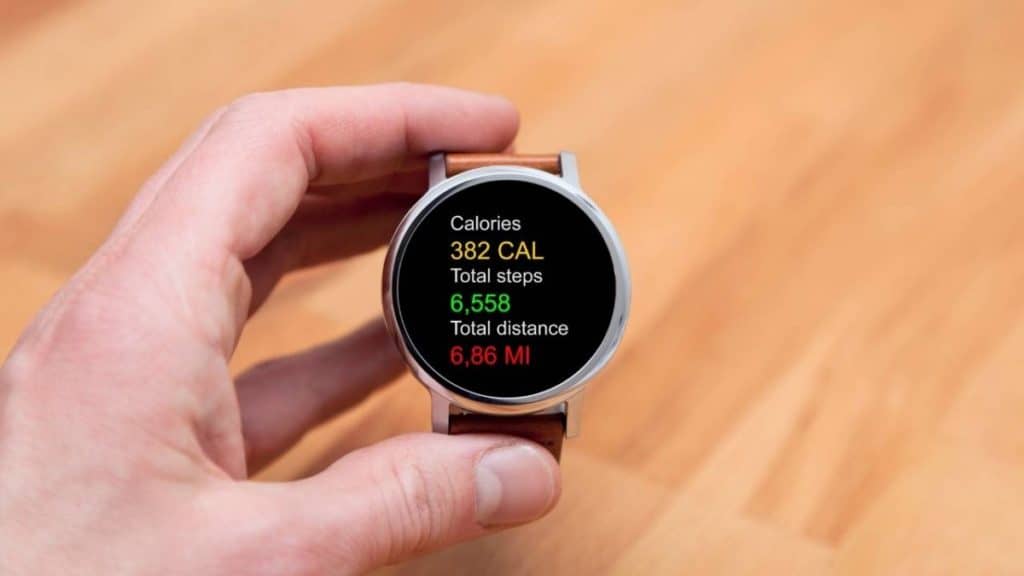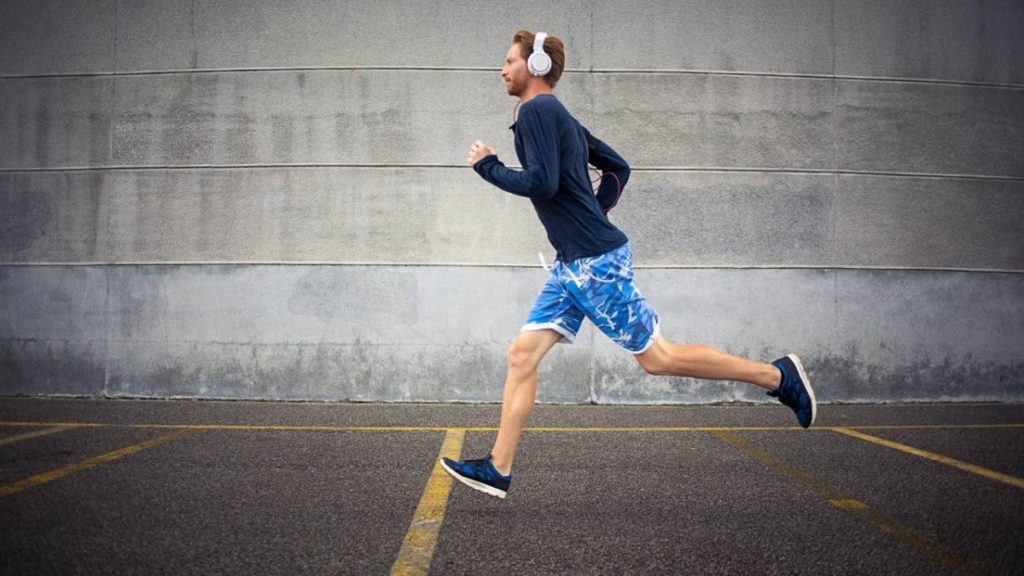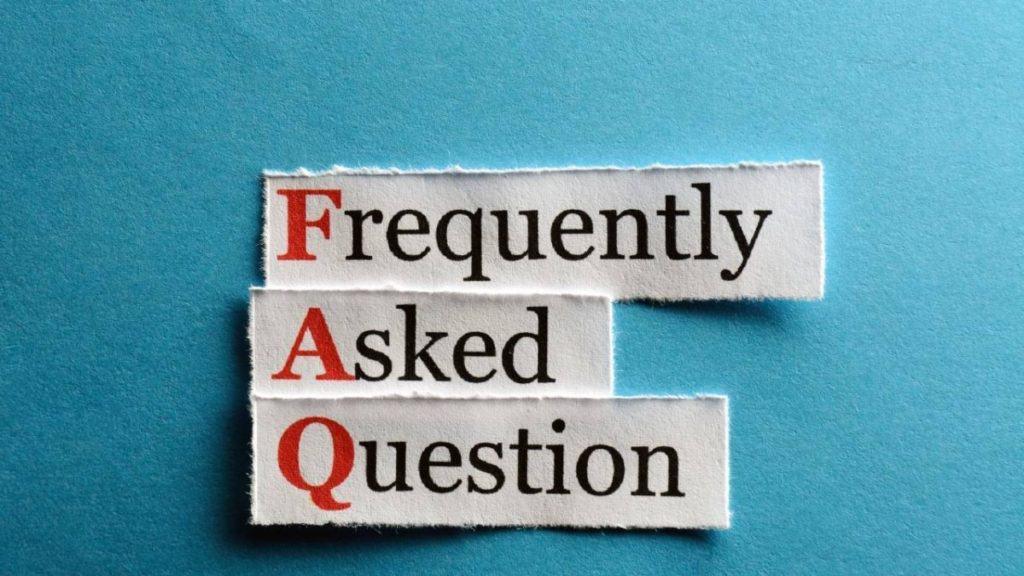
Cardio workouts are great to lose weight and stay healthy. Running is one of the most common cardio exercises and targeting a 5k is an excellent way to begin a weight loss journey and test your fitness levels. But how much weight will you lose running a 5k?
An average person will burn approximately 350-400 calories per 5k run and a total of 2500-2800 calories per week if they run seven days per week. This means they’ll burn roughly 3,500 calories and lose one pound of fat every nine days.
If you’re new to running, a 5K run is a great goal to aim for since it’s a manageable distance for people of all fitness levels. This article explores how a 5k run can help you lose weight and what other benefits you get from running regularly.
Table of Contents
Is Running 5K Good for Weight Loss?

To lose weight it is necessary for you to create, and maintain, a calorie deficit. A calorie deficit, simply put, means that you burn more calories than you consume on average.
You can achieve this by either decreasing the number of calories you consume or increasing the amount and intensity of your physical activity or exercise. Consistently running 5k while maintaining a calorie deficit will lead to weight loss.
To lose one pound of fat, you will have to create a calorie deficit of 3500 calories. On average, a 5k run will burn around 300 to 400 calories. However, the number of calories burned changes for each individual based on their body weight and running speed.
A 200-pound person who burns approximately 491 calories per 5K run will achieve a 3,500 calorie deficit and lose one pound every seven days. Have you every wonder is better to run on a 5km on treadmill? Is it faster, easier and safer on your joints? I answer everything in this article.
The table below shows the number of calories burnt for runners with different body weights.
| Body Weight | Calories burned Slow Run Speed (30-35 mins) | Calories burned Medium Run Speed (25-30mins) | Calories burned Fast Run Speed (20-25 mins) |
| 160lbs | 341 | 402 | 426 |
| 170lbs | 359 | 424 | 449 |
| 180lbs | 383 | 451 | 478 |
| 190lbs | 401 | 473 | 502 |
| 200lbs | 425 | 501 | 531 |
| 210lbs | 443 | 523 | 554 |
| 220lbs | 467 | 550 | 583 |
| 230lbs | 490 | 578 | 613 |
| 240lbs | 509 | 600 | 636 |
| 250lbs | 532 | 627 | 665 |
| 260lbs | 551 | 649 | 688 |

How to Calculate Your Calorie Burn?
You can calculate the calories you burn by using a calorie burn calculator online. You just need to add your weight and the distance and duration of your run. The calculator will determine your running pace and the calories burned during your run.
Another option for tracking the calories burned on your run, and throughout your day, is to invest in a fitness tracker. Fitness trackers monitor your movement throughout the day and calculate the calories you burn. You can also find and order fitness trackers that suit your style.
Maintaining a Calorie Deficit
Maintaining a calorie deficit is the most important factor when losing weight. A 5k run can help you burn a significant amount of calories but just one higher calorie meal or a couple of drinks can cause all your progress to be lost. To stay on track you need to be aware of the calorie content of the food you’re eating.
Tracking your calories isn’t always necessary. However, knowing your caloric intake can help you lose weight more effectively.
By calculating the calories your body requires daily, you can work out how to maintain an effective calorie deficit by increasing your exercise or lowering the calories you consume. Moreover, consuming nutrient-rich food your body requires will improve your overall health and fitness.
Burning More Calories During Your Run
If you want to hit your weight loss goal earlier and burn more calories while running you can incorporate techniques such as interval training to get more out of your 5k run.
Interval training consists of short bouts of high-intensity periods followed by a more extended period of lower-intensity running. Adding bursts of high speeds followed by rest periods where you run at a comfortable pace can make your muscles work harder, resulting in a higher calorie burn.

Running 5k 3 Times a Week: How Much Weight Will You Lose?
Someone that runs a 5km in an average time of 30 minutes will burn around 500 calories. Therefore, if you run 5km 3 times a week you can expect to burn 1500 calories a week resulting in half a pound of weight loss.
On average, it takes approximately 3500 calories to burn 1 pound of body fat. However, your weight loss will also depend on other factors like your diet, age, gender, and starting weight. This comparison table below will give you an estimated number of pounds you could lose weekly if you ran 5km 3 times a week.
| Body Weight | Calories burned | Weekly Weight Loss (pounds) |
| 160lbs | 1203 | 3.43 |
| 170lbs | 1272 | 3.63 |
| 180lbs | 1353 | 3.86 |
| 190lbs | 1419 | 4.05 |
| 200lbs | 1503 | 4.29 |
| 210lbs | 1569 | 4.48 |
| 220lbs | 1650 | 4.71 |
| 230lbs | 1734 | 4.95 |
| 240lbs | 1800 | 5.14 |
| 250lbs | 1881 | 5.37 |
| 260lbs | 1947 | 5.56 |

Is Running 5km 3 Times a Week Enough?
Running 5km 3 times a week is a great way to start your weight loss journey. However, to lose weight at a healthy and sustainable rate, you should aim to run 5km 3 times a week. This will help you burn more calories and reach your goals quicker.
If you’re looking to lose weight by running, you may also want to consider adding other forms of cardio or HIIT to your routine. This will help you burn even more calories and fat. Try adding in some weightlifting to help tone your muscles as you lose weight.
When beginning a new workout routine, always be sure to check with your doctor first, especially if you have any pre-existing medical conditions. But to see exactly how often you should run 5km and all the benefits read this article

How Many Times a Week Should I Run 5km to Lose Weight?
If your goal is to lose 1 pound of body weight each week you should run 5km every day. In order to lose weight, you will need to create a calorie deficit. This means that you need to burn more calories than you consume.
A 5km run can help you burn a significant amount of calories, but just one higher calorie meal or a couple of drinks can cause all your progress to be lost. To stay on track, you need to be aware of the calorie content of the food you’re eating.
You can create a calorie deficit by either increasing your exercise or lowering the calories you consume. To lose 1 pound of weight each week, you need to create a 500-calorie daily deficit. This means that you will need to burn 500 more calories than you consume each day.
If you want to lose weight faster, you can aim for a 1000-calorie daily deficit. However, this is not recommended as it can lead to unhealthy levels of weight loss. It’s important to note that your weight loss will also depend on other factors like your diet, age, gender, and starting weight.

6 Amazing Benefits of Running 5k
A 5k run can be beneficial for weight loss. However, there are many other advantages of running that will have you on the track in no time.
1. Increase Your Muscular Strength
Running a 5k will help you develop muscular strength and endurance, especially by engaging the primary muscles that your body uses while running. Muscle loss is a common occurrence with age, but running safely can help you fight against muscle loss, and consistently running will help you maintain and even gain muscle mass.
Remember to always take some rest after a few days of consistent running. Running at a slower pace every now and then will help your muscles relax and keep your body toned.
2. Build Stamina
Cardiovascular exercise, or cardio as we call it does wonders for your stamina. And what better cardio is there than running. Running puts your heart, lungs, and vascular system under stress, which improves your cardiorespiratory strength and endurance. Running 5k regularly boosts your stamina!
3. Strengthen Your Bones
Running is a high-impact sport, which means that the rhythmic pounding of the pavement stresses your joints in a beneficial way. Your bones respond to stress by strengthening in order to withstand the repeated impact. Use running shoes that are suitable for you and run on tracks to maximize the benefits.
4. Improve Your Mood And Mental Health
Running can lift your spirits and improve your mental health. These benefits take place both during each run and after. While running, your body produces “feel good” hormones known as endorphins. These can help keep the working muscles from hurting, allowing runners to keep going. In some cases, it may even contribute to the “runner’s high.”
Running a 5k can serve as an antidepressant and reduce your stress and anxiety. Mental health benefits of running regularly include improved memory, elevated mood, and better task-switching performance.
5. Sleep Better
Running regularly can assist your body in slowing down and preparing itself for sleep as the day turns to night, improving or maintaining your natural circadian rhythm. And the good news is that it doesn’t really matter what time of day you run.
Determining what running schedule works best for you is essential because running at night may keep one person awake while causing another to fall asleep more easily.
6. Decrease Your Risk of Disease
Running has been shown to reduce the risk of various chronic diseases significantly. Running improves your blood pressure and circulation while also lowering your risk of dying from cardiovascular disease.

FAQs
Q: How Long Should a 5K Take?
A: Beginners can expect to finish a 5K in 30-45 minutes on average. If you’re an intermediate runner (you run 10 – 20 miles per week on average), you’ll probably run faster, and the average time for most runners is around 20-25 minutes.
Q: How Long Is A 5K Run in Miles?
A: One mile is approximately 1.6 kilometers or 1600 meters. A 5k run is 5000 meters, which converts to 3.1 miles. On a standard outdoor track, a 5K (5,000 meters) is 12.5 laps.
Q: How Many Steps Is a 5K?
A: Based on a stride length estimate of 2.1 to 2.5 feet, a person of average height will take approximately 6250 steps over a 5k distance. However, this drops down to around 4,700 when running 5k as your stride length increases.
Final Thoughts
Running 5k offers a multitude of physical and mental benefits that can empower you to be your best self. By running 5k every day, you can easily hit your weight loss goals while enjoying increased levels of fitness and health.



